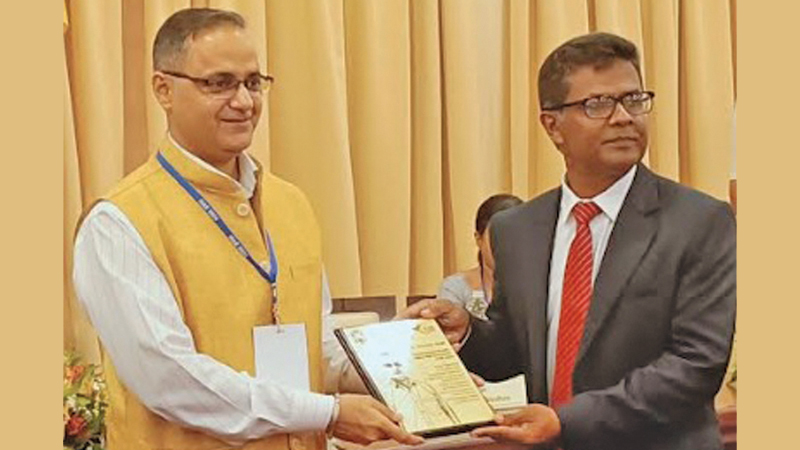Many global issues including the Covid-19 pandemic has left millions of people with a lack of food and to overcome this, Governments should promote agriculture in a bigger way, said Consul General of India in Hambantota, Shri Harvinder Singh at a Ruhunu University organised symposium in Matara last week.
“building resilient agri-food systems for nutrition security and food sovereignty is safe insurance for the future.” “Today the world is blessed to have facilities such as the internet, advanced medical treatment and air connectivity and many live a comfortable life in comparison to those who lived 100 years before us. “We have quick access to information through the mobile phones in our hands and we are able to communicate with people in other parts of the world within seconds.
However, three basic needs of every human being remain: food, shelter and clothing. “If any of these three basic needs are not fulfilled the entire paraphernalia of scientific progress that we see around us seems to be meaningless.
“Food security, health and nutrition are paramount not only for overall human wellbeing, but also for securing livelihoods and economic development.
“Unfortunately, while we as humans have embarked on a journey of scientific advancement, we have somehow diverted our attention from this very basic need,” he said.
According to the 2023 edition of the United Nations, State of Food Security and Nutrition in the World report, between 691 and 783 million people faced hunger in 2022, an increase of 122 million people compared to 2019. “If recent trends continue; the under-nourished will surpass 840 million by 2030,” Singh said.
The report also stated that while 2.4 billion people experienced moderate food insecurity and 900 million people faced severe food insecurity. The major factors which adversely affect agriculture yield are global greenhouse gas emissions, land degradation and the depletion of water resources. “Furthermore, due to increased population, the area under irrigation is also getting reduced,” he said. India being a large country with the highest population in the world has first-hand experience of dealing with the problem of food scarcity and over the years has done exceptionally well in ensuring food security for its population.
“During the Covid-19 pandemic, India provided a free ration of wheat, rice and other cereals to over 800 million citizens,” Singh said.
India has embarked upon multiple strategies including reducing the productivity gaps of smallholder farmers, nature-positive solutions, restoration of degraded land, and selecting tree species to be used in restoration to address food security.
– SS









